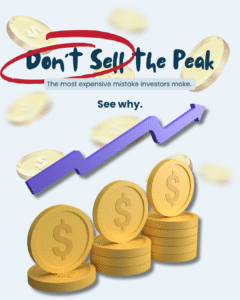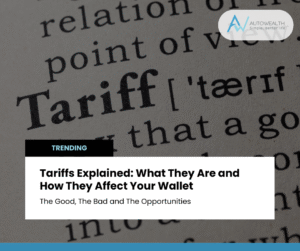“Compound interest is the eighth wonder of the world. He who understands it, earns it … he who doesn’t … pay its”, Albert Einstein.
If you are under 30, you probably would think that it would be easier to worry about investing or opening a retirement account 5 to 10 years down the road. However, this is one of the most common mistake. You should start investing right NOW because you are YOUNG. Time is on your side!
Let “Compounding” works its magic.
But, how exactly? To illustrate, let’s have a simple pop quiz.
We have two individuals that started working at the age of 25 and both aims to retire by the age of 60. Compounded monthly, the market returns 6% a year.
Amy the Head-starter decides to start early and invests $100 a month for 10 years. Upon reaching 35, she stops contributing but leaves the money in the market for the next 25 years.

On the other hand, Ethan the Optimist decides to wait 10 years before he starts to invest $100 a month for the next 25 years until he is 60.

Now, here comes the million-dollar question. Who do you think would end at up with a larger sum of investment at age 60? Would it be Amy who contributed $12,000, or Ethan who contributed $30,000?

Logically, it would make more sense for Ethan to end up with a bigger sum given that he contributed 3 times the amount. However, we should not underestimate the power of compound interest!
If you’ve guessed that Amy ends up with the larger sum of investment at age 60, kudos to you!

Despite investing $18,000 lesser, Amy’s end-of-year balance at Age 60 still triumphs over Ethan’s end-of-year balance by $3,891.60.
The term “compounding” may be foreign to some, but it can be easily explained.
Compounding is the process by which the earnings on an investment (capital gains + interest) earns interest over time, thus increasing the value of the total investment. This exponential growth occurs as both the (1) total growth of an investment, along with the (2) principal earn money in the next period.

Simply said, compound interest can be thought of as “interest on interest”, thus allowing the sum to grow at a faster rate, as compared to simple interest, which is calculated only based on the principal amount.
Due to the compounding process, where interest is being repetitively earned on Amy’s interest, she ends up with a large sum even when her personal contribution is only $12,000. In fact, if Amy continued to invest just $100 a month, instead of stopping at 35, she would end up with an enormous sum of $143,183.39 by age 60.
This is why you need to start investing now!
Visit AutoWealth today to learn how you can start investing early in just 4 simple steps!













